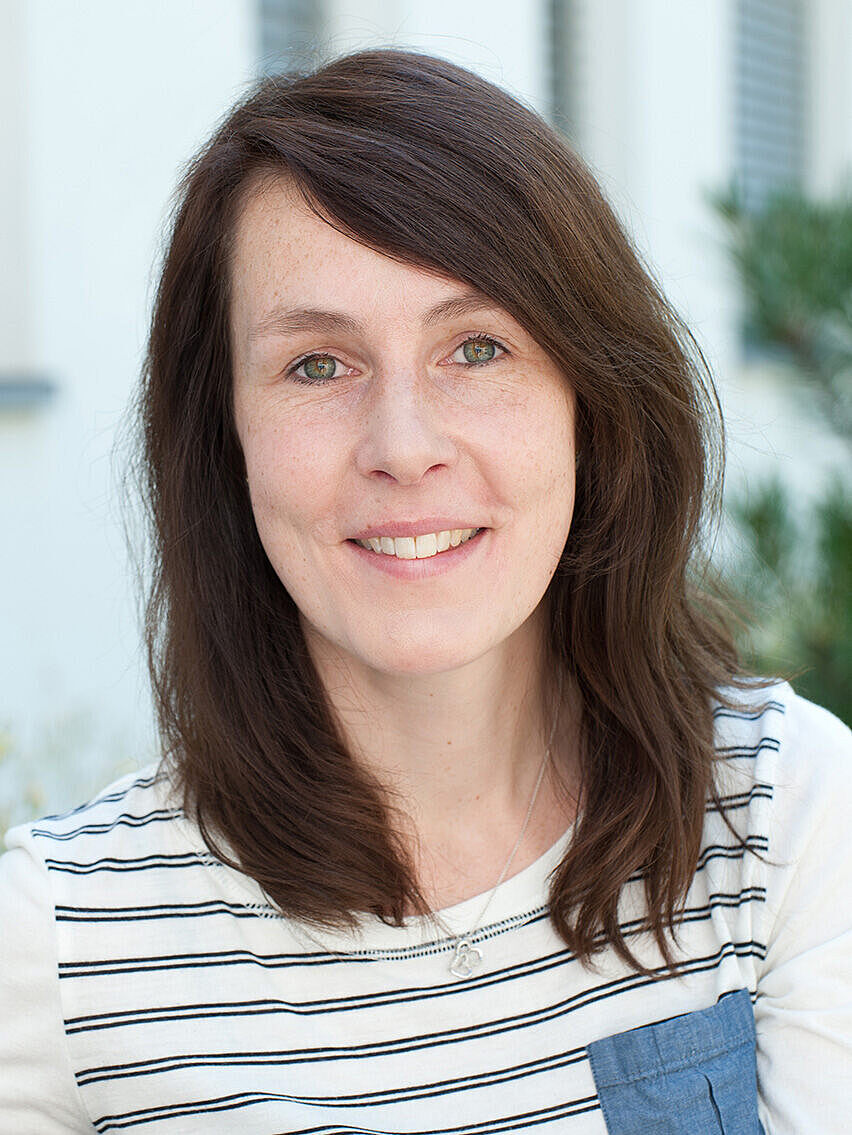PD Dr. rer. nat. habil. Sabine Vettorazzi

Research directions:
Inflammation is a natural reaction of the body to invading pathogens. Depending on the type of inflammatory response and pathology, it can occur as acute (sepsis, lung inflammation) or chronic inflammation. In addition, during inflammation, cells are exposed to constant mechanical stresses that influence their inflammatory status. The reduction of inflammation that in turn later supports the resolution inflammation is a crucial mechanism to revert the body back to a healthy status.
My group aims to investigate novel hormonal driven mechanisms in inflammation. With the aim to identify and target new regulators for anti-inflammatory processes, and pro-resolving mechanisms to accelerate the resolution of inflammatory processes.
![[Translate to english:] AG Vettorazzi](/fileadmin/_processed_/1/3/csm_DSC_0297_7efc7283e4.jpg)
1. Reversibility of long-term glucocorticoid effects
In this DFG funded project, we look at the long-term effects of glucocorticoid therapy in murine tissues. Glucocorticoids are widely prescribed to treat inflammatory diseases. The aim of this project is to understand glucocorticoid effects in non-immune cells to evaluate mechanisms involved in the adverse effects of glucocorticoid therapy. This project is a cooperation with Dr. Franziska Greulich at the TUM School of Life Science. We are using mouse models, histology, molecular biology, next-generation sequencing and single-cell analysis. We are looking for master students as well as student aids (HIWI) soon. If you are interested in this project, please contact me directly (sabine.vettorazzi(at)uni-ulm.de).
2. Peripheral nerve injury: cross-talk between Schwann cells and macrophages
Peripheral nerve injury affects 5% of all admitted trauma patients. Regeneration potential and functional recovery of peripheral nerves varies depending on age, injury severity and location. Schwann cells are the main drivers of peripheral nerve regeneration after injury by switching from a differentiated to a regenerative repair state. In addition, efficient macrophage phagocytosis is important to clear tissue debris from injury site and a crucial step in the degeneration phase to ensure a successful following regeneration phase. In this DFG funded project, within the CRC 1149 (danger response, disturbance factors and regenerative potential after acute trauma) we investigate the cross-talk between Schwann cells and macrophages and will identify crucial factors to enhance the regeneration potential after peripheral nerve injury. We are looking for PhD students as well as master. If you are interested in this project, please contact me directly.
3. Combined effects of adrenal gland hormones
Adrenal gland hormones contribute to an important extent during inflammatory processes by fostering the resolution of inflammation by their action on immune cells. This project aims to understand the underlying mechanisms in various inflammation models as well as the translational aspect into humans. We are looking for master and bachelor students. If you are interested in this project, please contact me directly (sabine.vettorazzi(at)uni-ulm.de).
4. Mechanostimulation
During inflammation (immune) cells are constantly experience to mechanical stimulation. In this project we investigate the impact of mechanostimulation and the role of nuclear receptors during (resolution of) inflammation. We are looking for master and bachelor students. If you are interested in this project, please contact me directly (sabine.vettorazzi(at)uni-ulm.de).
5. Arthritis (in cooperation with Prof. Dr. Tuckermann)
Glucocorticoids are used to treat rheumatoid arthritis in patients due to their potent anti-inflammatory actions, however their long-term use is compromised by side effects (glucocorticoid resistance and insulin, osteoporosis). In this project we aim to investigate the role of anti-inflammatory glucocorticoids in immune and non-immune cells during arthritis. We are looking for master and bachelor students. If you are interested in this project, please contact me directly (sabine.vettorazzi(at)uni-ulm.de).
Wepler, M., Preuss, J.M., Tilp, C., Keck, M., Blender, J., Wachter, U., Merz, T., Vogt, J.,Kress, S.,Groeger, M., Hoffmann, A., Fink, M., Calzia, E., Burret, U., Radermacher, P.,Tuckermann, J., Vettorazzi, S. (2022) Cigarette smoke exposure reduces hemorrhagic shock induced circulatory dysfunction in mice with attenuated glucocorticoid receptor function. Front. Immunol., 13;980707
Stifel, U., Wolfschmitt, E.-M., Vogt, J., Wachter, U., Vettorazzi, S., Tews, D., Hogg, M., Zink, F., Koll, N. M., Winning, S., Mounier, R., Chazaud, B., Radermacher, P., Fischer-Posovszky, P., Caratti, G., and Tuckermann, J. (2021) Glucocorticoids Coordinate Macrophage Metabolism Through Regulation of the Tricarboxylic Acid Cycle. Mol. Metab., doi: 10.1016/j.molmet.2021.101424.
Vettorazzi, S., Nalbantoglu, D., Christof, J., Gebhardt, M., Tuckermann, J., Gebhardt, J. C. M., and Tuckermann, J. (2021) A guide to changing paradigms of glucocorticoid receptor function—a model system for genome regulation and physiology. FEBS J., doi: 10.1111/febs.16100.
Pfänder, P., Eiers, A.-K., Burret, U., Vettorazzi, S. (2021) Deletion of Cdk5 in Macrophages Ameliorates Anti-Inflammatory Response during Endotoxemia through Induction of C-Maf and Il- 10. Int. J. Mol. Sci. Artic., doi: 10.3390/ijms22179648.
S. Vettorazzi, C. Bode, L. Dejager, L. Frappart, E. Shelest, C. Klassen, A. Tasdogan, H.M. Reichardt, C. Libert, M. Schneider, F. Weih, N.H. Uhlenhaut, J.-P. David, M. Graeler, A. Kleiman, J.P. Tuckermann (2015), Glucocorticoids limit acute lung inflammation in concert with inflammatory stimuli by induction of SphK1, Nature Communications, doi: 10.1038/ncomms8796.
Further publications by Dr. Sabine Vettorazzi can be found in our publications directory.
08/2019 - 01/2024, PhD student Jonathan Preuß, University Ulm „ Crosstalk of adrenal gland hormones“
01/2020 - current, PhD student Denis Nalbantoglu, University Ulm „ Mechanostimulation in the innate immune system”
07/2022 - current, PhD Student Ann-Kathrin Eiers, University Ulm „Regulation of fibroblast-like synoviocytes by glucocorticoids in arthritis"
02/2023 - current, PhD Gizem Öztürk, Doktorand Universität Ulm, „Reversibility of long-term glucocorticoid effects"
04/2023 – current PhD, Lorena-Madeleine Witzl, University Ulm
“Glucocorticoids influence Schwann cell and macrophage responses in a mouse
model of peripheral nerve injury”
07/2023 – current, Masterstudent, Matthias Bauer, University Ulm
Biological Technical Assistant, Ute Burret
Bachelor students
Masterarbeiten
